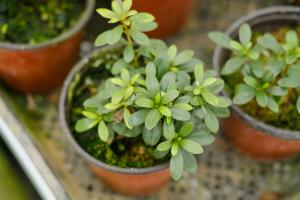Can You Plant Trees in Public Parks?
Public parks are great places to relax, unwind, and connect with nature. They make for excellent venues for picnics, walks, and other outdoor activities. Parks comprise of vast expanses of green spaces that offer visitors unlimited opportunities to connect with nature. One question that we often get asked is whether people can plant trees in public parks. Here is what you should know.
Regulations on Planting Trees in Public Parks
Planting trees in public parks is usually regulated by local authorities. Municipal or local councils are responsible for managing and maintaining public parks in their jurisdiction. As a result, they set out rules and regulations that govern the use of such public spaces.
Most local authorities have departments responsible for managing the public spaces and facilities, including parks. Before planting any trees in a public park, it's essential to inquire about the requirements that govern public park use and any rules related to planting of trees.
Advantages of Planting Trees in Public Parks
The benefits of planting trees in public parks are numerous. They include:
Improving the aesthetic value of the park by adding more greenery
Providing shade, which is essential during hot summers, making the parks more comfortable and attractive to visitors
Cleansing the air of pollutants, and providing a source of fresh air, improving overall air quality in the area
Providing homes for wildlife, which, in turn, can enhance biodiversity in the parks
Reducing soil erosion, conserving soil moisture, and preserving the integrity of the park's ecosystem
Where to Plant Trees in Public Parks
When it comes to planting trees in public parks, it's essential to determine the appropriate location. Planting trees in inappropriate areas can be costly and even hazardous to visitors. As a result, local authorities usually have specified areas where individuals or groups can plant trees in public parks.
Some factors to consider when choosing a location for planting trees include:
The type of soil and its ability to support vegetation
The proximity to facilities such as playgrounds, buildings or other park infrastructure
The proximity to existing trees and other vegetation in the parks
The potential impact on drainage systems and infrastructure in the park
The surrounding area, and any potential negative impact on human activity around the park
Conclusion
Planting trees in public parks has numerous benefits for both visitors and the environment. However, planting trees in public parks requires proper planning, as there are specific rules and regulations that must be followed. Before beginning any planting project in a public park, it's essential to get the right information from local authorities and follow all rules and regulations.

 how many times do yo...
how many times do yo... how many planted tre...
how many planted tre... how many pine trees ...
how many pine trees ... how many pecan trees...
how many pecan trees... how many plants comp...
how many plants comp... how many plants can ...
how many plants can ... how many plants and ...
how many plants and ... how many pepper plan...
how many pepper plan...































